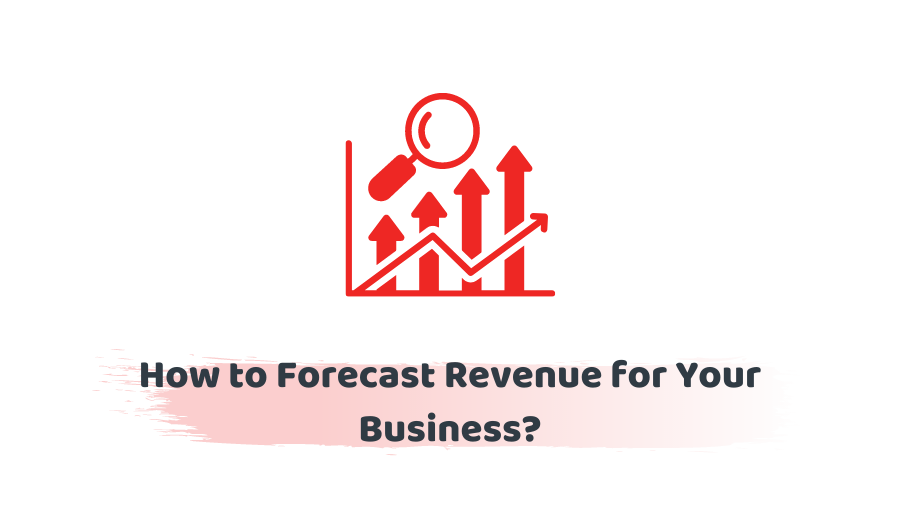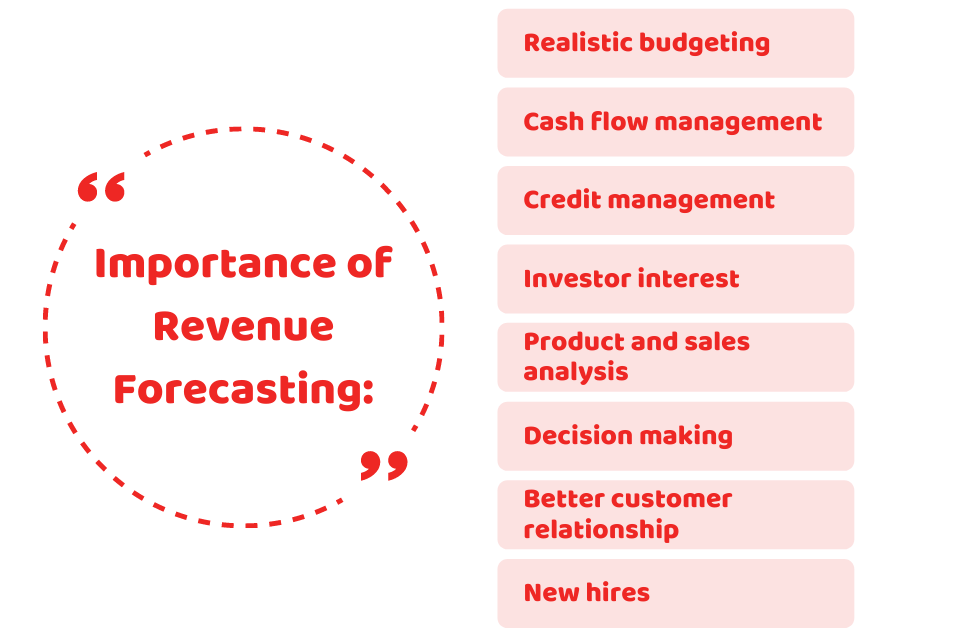If you’re just starting out, you may find it difficult to forecast the revenue of your business and it may seem overwhelming. Revenue forecasting is undoubtfully a time-consuming task for business owners as it needs in-depth research and analysis. It helps investors to know whether a business is worth their investment. Plus, it is also beneficial to develop staffing and operational plans that play a vital role in your business success.
In this easy to follow guide, we’ll help you to know how to forecast revenue for your business. But before we delve deep into it, let’s discuss what is revenue forecast and why it is important for your business?
Find out how our Chartered Accountants can help you to improve your business cash flow. Call us at 0203441 1258 or send us an email at [email protected]!
Understanding Revenue Forecast
The revenue forecast is the process of estimating your future revenue in a specific period. Generally, this forecast is done on an annual or quarterly basis. For example, if you want to ascertain revenue for the next month, quarter or year, this forecast will indicate where your business is standing right now. It is based on the past performance of your business and its current state. Unlike a guess, you need to have reliable data to make a forecast.
Why Revenue Forecast is Important for Your Business?
There are dozens of advantages of forecasting revenue for your business. Alike financial planning and modeling, revenue forecasting is all about making your business ready for the future.
It keeps your business protected from surprises and assists you to make informed business decisions for its growth. Revenue forecast can be important for your business for:
- realistic budgeting
- cash flow and credit management
- investor interest
- product and sales analysis
- decision making
- better customer relationship
- new hires
Find more about revenue forecasting with our professionals. Give us a call on 02034411 258 or request a callback.
How to Forecast Revenue for Your Business?
Now that you have got some basic knowledge on revenue forecasting, let’s have a look at the process of doing a revenue forecast as per your business goals and plans for the future:
1) Research Thoroughly
You first need a significant amount of data to do the revenue forecast. Along with your expenses and repeat payments, you also need to get data from competitors who’re in similar growth stages like your business. In addition, have a look at their predicted seasonal trends and on which seasons their revenue increases. Extract data from your analytics, financial reports and other resources to compile them for the forecast.
2) Forecast Your Expenses
To forecast your revenue, you need to predict your expenses first. It is an easy process as you can predict them through your past expense records if you’re an existing business. If you’re a startup, you need to do in-depth research for your forecast. Existing businesses need to work out these main types of expenses:
- Fixed Costs: Expenses that remain fixed every month. Rent, insurance, dues and subscriptions, equipment leases, payments on loans, depreciation, phone, internet, legal expenses, accounting fees, advertising expenses and technology costs are included in it.
- Variable Costs: Expenses that change every month ( as per your sales volume) are known as variable expenses. These expenses include COGS (Cost of goods sold), labour cost, marketing, packaging costs, and customer service cost, etc. These are variable expenses as they are directly associated with the sale of your product.
3) Forecast Your Sales
Forecasting sales may seem a daunting process, but it is not that difficult as it seems. You need to look at some raw data and make a logical prediction based on it. If your business is existing for some time, check out your past sales figure to guess the future sales of your business. Before implementing this process, you need to consider the following factor:
- Customer base: Identify your customer base and figure out which customers will be included in your forecast. Bear in mind that you’ll run 80% of your business with 20% clients.
- Your service area: If you want to grow and expand your business, you need to include your current location along with your future location.
- Market conditions: Find out the market condition. Will it remains the same or there’ll be changes.
- Business standing: Ascertain where your business stands right now and what are your growth expectations.
- Seasonal adjustments: See if your business fall in a seasonal cycle where there’re high sales in the peak seasons and your sales dropped in the off-seasons.
Startups may find it difficult to forecast their revenue as they lack historical records. They need to do in-depth research as the outcome would be based on that research. Therefore, startups need to find data from various resources to get reliable information to make an educated guess:
- Visit the government website to know which sector is going up and what things people are using or consuming
- Check out the detailed information about your industry from multiple sources
- See the most recent price index to work out the price stability of your industry
By doing this research, you can further use it to predict your future sales. You can get it by following these steps:
- Find out the method to calculate sales for your industry
- Determine your ideal customers
- Estimate your market share
- Determine how often a customer will buy your product or service
- Forecast the average amount of each purchase for each of your product or service
To find out your sales forecast, use all the figures and put them in this formula:
Number of Customers x Average Sales Price x Number of Annual Purchases = Annual Projected Sales
After getting the annual projected sales, you can subtract your total projected expenses to arrive at your revenue forecast.
Quick Sum Up
Hopefully, you have now understood how to forecast revenue for your business. Bear in mind that you need to stick to one forecasting method to get an accurate forecast. A good forecast needs to be backed up with good data. The more you put your energies to gather good data, the better your forecast will be. With researched data, you can predict the business revenue that will help you to project growth, attract investors and make informed business decisions.
Rely on Accotax to sort out your accounting, tax, payroll and cash flow issues! Get an instant quote based on your requirements online in under 2 minutes, Sign up online or request a callback.
Disclaimer: This blog is intended to provide general information about the topic.






















































